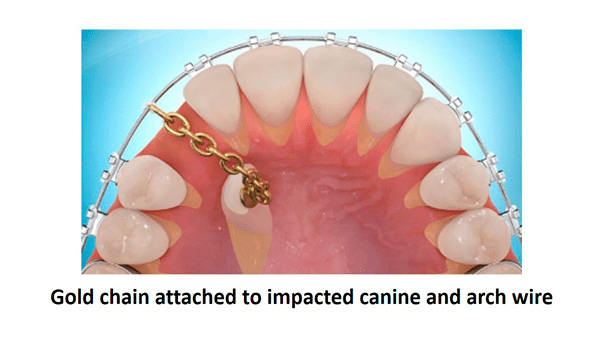Impacted Teeth

You may have heard the term “impacted” used to describe a tooth and wonder what it means.
In orthodontic or dental terms, “impacted” means that a tooth either has not come in (“erupted”) when expected or a tooth that cannot erupt because it does not have room or may be coming in the wrong direction or position. What causes an impacted tooth may not be known – for some people, it just happens. Genetics can play a role, so if a parent had an impacted tooth, their child may experience the same problem.

Children who are getting their permanent teeth can have impacted teeth. A permanent tooth can be trapped in the gums if a baby tooth does not fall out on time or if something blocks the permanent tooth’s path. A permanent tooth may not erupt at all, or if it does, the tooth may appear in the wrong place. Sometimes, an impacted tooth can harm the roots of neighboring teeth. Impacted teeth can also cause crowding, and may cause already erupted teeth to move into unhealthy positions. Children may find it difficult to bite or chew, and there can be tenderness or pain. As the teeth become crowded, appearance is affected, and self-esteem can decline.
Fixing an impacted tooth can range from relatively simple to complicated. It all depends on the extent of the problem. Extracting a baby tooth may be all that is needed to make room for the permanent tooth to erupt into the proper position. But if an upper jaw is too narrow, it may be necessary to expand the jaw, which creates more room for permanent teeth to come in. Other problems might require a combination of oral surgery and orthodontic treatment to place an attachment on the impacted tooth and Dr. Herman then guides the tooth into the proper position.


Recent Comments